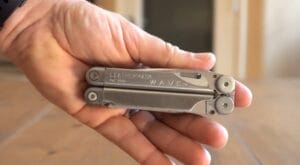 Fingers softened by punching a keyboard all day won’t respond well to twisting wire, and you don’t want to risk dental damage by trying to cut or break things apart with your teeth. A good, well-built, multi-tool just might save your life. These come in many different brands with a range of features. Some people swear by certain brands: Leatherman, Gerber, Pohaku, Mossy, and more. Whatever you select, make sure it has pliers, a cutting mechanism, a serrated edge, and a file of some type. Then, put it to the test and use it frequently. Make sure it’s sturdy and you know how each tool works. Whether fashioning a fishhook from a soda pull tab, cutting wire and rope, or pulling a tooth or nail, you will be glad to have one of these in your inventory.
550+ Paracord, Duct Tape, Bungee chords
Fingers softened by punching a keyboard all day won’t respond well to twisting wire, and you don’t want to risk dental damage by trying to cut or break things apart with your teeth. A good, well-built, multi-tool just might save your life. These come in many different brands with a range of features. Some people swear by certain brands: Leatherman, Gerber, Pohaku, Mossy, and more. Whatever you select, make sure it has pliers, a cutting mechanism, a serrated edge, and a file of some type. Then, put it to the test and use it frequently. Make sure it’s sturdy and you know how each tool works. Whether fashioning a fishhook from a soda pull tab, cutting wire and rope, or pulling a tooth or nail, you will be glad to have one of these in your inventory.
550+ Paracord, Duct Tape, Bungee chords
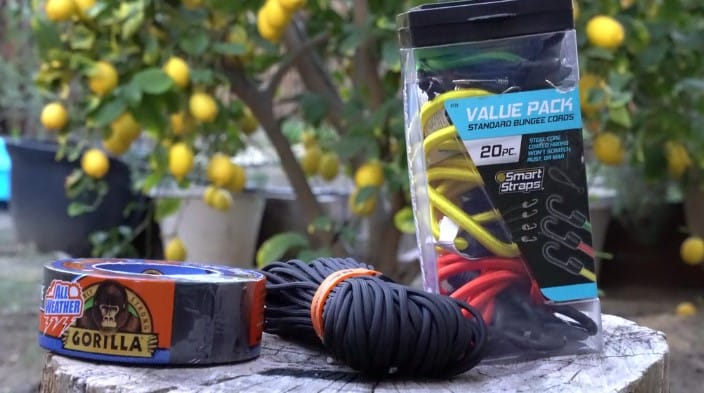 The use of cordage and duct tape is without limitation. From tying down a structure or setting up a rain tarp, you are only limited by your knowledge of how to use them. Pay up for a good paracord and understand its uses. Do the same for duct tape. There’s a big difference between Gorilla all-weather duct tape and the silver stuff you can buy cheap. You do not want to find out its cheap tape or cord when it’s raining on you. As for bungee cords, from tying things down to fashioning a makeshift bow or slingshot to functioning as a belt for your pants, a bungee cord is a go-to item that should be in your inventory. It’s a compression device with a built-in clasp, basically, and you will find it helpful in so many different situations.
Water Filtration & Treatment
The use of cordage and duct tape is without limitation. From tying down a structure or setting up a rain tarp, you are only limited by your knowledge of how to use them. Pay up for a good paracord and understand its uses. Do the same for duct tape. There’s a big difference between Gorilla all-weather duct tape and the silver stuff you can buy cheap. You do not want to find out its cheap tape or cord when it’s raining on you. As for bungee cords, from tying things down to fashioning a makeshift bow or slingshot to functioning as a belt for your pants, a bungee cord is a go-to item that should be in your inventory. It’s a compression device with a built-in clasp, basically, and you will find it helpful in so many different situations.
Water Filtration & Treatment
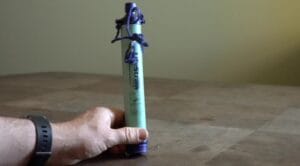 Without water, you won’t survive three days. Consider a LifeStraw or Mini Sawyer. These won’t be a permanent solution for you, but 1,000 or 100,000 gallons of water will get you a lot further down the road than a case of dysentery. Consider too germicidal water purification tablets. While these won’t filter toxins, they will kill all biological organisms in your water. You can easily get both of these solutions in your pack at just a few ounces of weight, so make this survival essential an absolute priority.
Tarp & Heavy Duty Trash Bags
Without water, you won’t survive three days. Consider a LifeStraw or Mini Sawyer. These won’t be a permanent solution for you, but 1,000 or 100,000 gallons of water will get you a lot further down the road than a case of dysentery. Consider too germicidal water purification tablets. While these won’t filter toxins, they will kill all biological organisms in your water. You can easily get both of these solutions in your pack at just a few ounces of weight, so make this survival essential an absolute priority.
Tarp & Heavy Duty Trash Bags
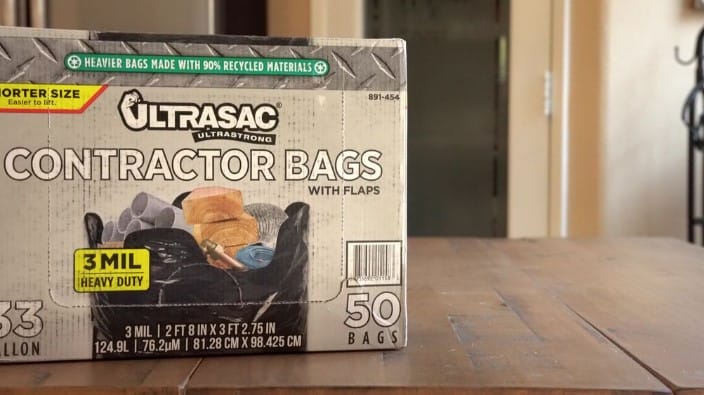 Tarps and heavy-duty trash bags allow you to haul things, direct rainwater, store items, or even allow you to construct a makeshift shelter or poncho to protect you from the elements. Simply having an instant roof over your head when you are out in the elements could mean the difference between life and death. Even if it’s not that extreme of a situation for you, having the plastic to dispose of waste or cover a storm-damaged roof can turn a bad disaster into a minor disaster. Here too, you can have a thick tarp and thick, contractor-grade trash bags in your bag for barely any weight.
Fire Starters & Candles
Tarps and heavy-duty trash bags allow you to haul things, direct rainwater, store items, or even allow you to construct a makeshift shelter or poncho to protect you from the elements. Simply having an instant roof over your head when you are out in the elements could mean the difference between life and death. Even if it’s not that extreme of a situation for you, having the plastic to dispose of waste or cover a storm-damaged roof can turn a bad disaster into a minor disaster. Here too, you can have a thick tarp and thick, contractor-grade trash bags in your bag for barely any weight.
Fire Starters & Candles
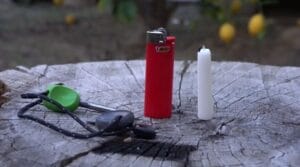 If we had just one means to start a fire, a lot could go wrong. If we had just one accelerant, it would be a wax candle. We suggest you have multiple means of starting a fire, from regular old bic lighters to matches to Ferro rods. Getting a fire going is essential, and not everyone is an expert at getting fire from two sticks. Because of this, candles make lighting a fire so much easier or can simply be used for the light they provide. When placed on a beginning fire with the wax dripping, you will have an inferno in just a few minutes.
Crank or Solar Charger/Light
If we had just one means to start a fire, a lot could go wrong. If we had just one accelerant, it would be a wax candle. We suggest you have multiple means of starting a fire, from regular old bic lighters to matches to Ferro rods. Getting a fire going is essential, and not everyone is an expert at getting fire from two sticks. Because of this, candles make lighting a fire so much easier or can simply be used for the light they provide. When placed on a beginning fire with the wax dripping, you will have an inferno in just a few minutes.
Crank or Solar Charger/Light
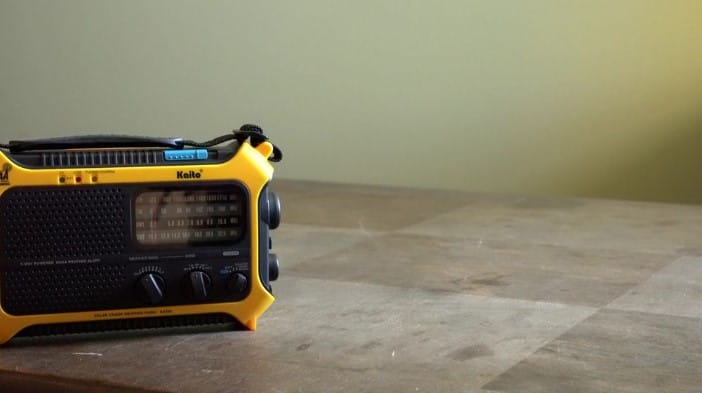 You will need some power, even if it’s just to charge up a flashlight or smartphone. A hand crank charger or a small solar battery can generate the electricity you need. Some have built-in emergency radios, flashlights, and other features. Read the reviews to ensure you’re getting a quality unit. You will burn calories operating a hand crank charger, but you will also function with fewer electrical requirements.
Tactical Multi-Use Flashlight
You will need some power, even if it’s just to charge up a flashlight or smartphone. A hand crank charger or a small solar battery can generate the electricity you need. Some have built-in emergency radios, flashlights, and other features. Read the reviews to ensure you’re getting a quality unit. You will burn calories operating a hand crank charger, but you will also function with fewer electrical requirements.
Tactical Multi-Use Flashlight
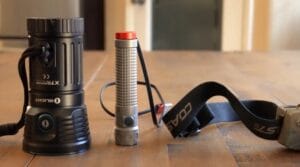 Remember playing with dad’s trusty old metal flashlight that took two D-Cell batteries and had one bulb? You might still have that around to this day. It’s time to upgrade. Flashlights have advanced a thousand times over since then. They can come super bright and rechargeable. It’s time to upgrade your flashlight. A headlamp frees up your hands and be sure to pick up a light with a red light to reduce drawing attention to yourself and maintaining your night vision.
Leather Gloves, Hat, Rain Jacket, Fleece Jacket, Socks, Shoes
Remember playing with dad’s trusty old metal flashlight that took two D-Cell batteries and had one bulb? You might still have that around to this day. It’s time to upgrade. Flashlights have advanced a thousand times over since then. They can come super bright and rechargeable. It’s time to upgrade your flashlight. A headlamp frees up your hands and be sure to pick up a light with a red light to reduce drawing attention to yourself and maintaining your night vision.
Leather Gloves, Hat, Rain Jacket, Fleece Jacket, Socks, Shoes
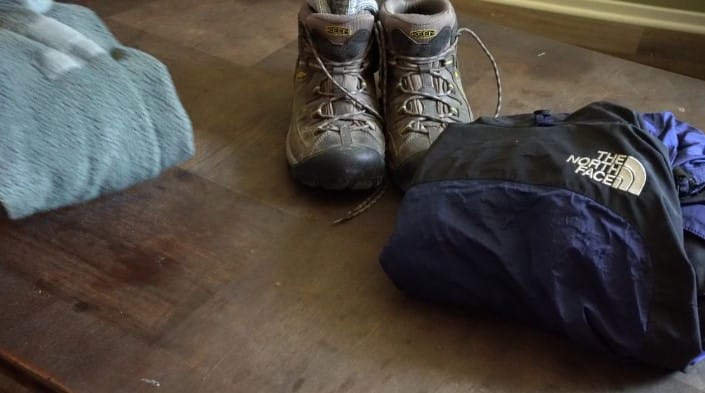 Your first layer of protection from the elements is what you are wearing. If disaster strikes and you are thirty miles from home and dressed business casual, you may find it challenging to get back home. Having a hat, rain jacket, fleece jacket, socks, and an old pair of walking shoes or sneakers in your bag can put the odds back in your favor. And, if you are going to be out in the wild for any amount of time, I always recommend leather gloves. Some gloves these days look excellent and sturdy, but they aren’t. They tear easily or separate, but we have never had a leather glove fail me once.
Walkie Talkies or Ham Radio
Your first layer of protection from the elements is what you are wearing. If disaster strikes and you are thirty miles from home and dressed business casual, you may find it challenging to get back home. Having a hat, rain jacket, fleece jacket, socks, and an old pair of walking shoes or sneakers in your bag can put the odds back in your favor. And, if you are going to be out in the wild for any amount of time, I always recommend leather gloves. Some gloves these days look excellent and sturdy, but they aren’t. They tear easily or separate, but we have never had a leather glove fail me once.
Walkie Talkies or Ham Radio
 The one-way communication of your emergency radio that may come with your crank charger is excellent for finding out the threats around you. A walkie talkie or Ham Radio is better because it will provide two-way communication. You do need to get a license to operate legally for the Ham, but during an emergency, it is not required. You may just monitor the chatter or look for responders or survivors of whatever disaster has befallen you. Having at least some form of two-way communication in your group is a game-changer.
Stainless Steel Sealable Container
The one-way communication of your emergency radio that may come with your crank charger is excellent for finding out the threats around you. A walkie talkie or Ham Radio is better because it will provide two-way communication. You do need to get a license to operate legally for the Ham, but during an emergency, it is not required. You may just monitor the chatter or look for responders or survivors of whatever disaster has befallen you. Having at least some form of two-way communication in your group is a game-changer.
Stainless Steel Sealable Container
 Having a lidded stainless steel container isn’t something you might think you need, but after a disaster, you will be glad to sterilize water in it, even carry water in it. You will want non-insulated stainless steel you can put on or near a fire if you have to. Have at least one in your Everyday Carry bag. If all you ever have to do is heat some water to pasteurize it and make it drinkable, you will be glad to have these.
Hatchet/Fixed Blade Knife/Folding Saw
Having a lidded stainless steel container isn’t something you might think you need, but after a disaster, you will be glad to sterilize water in it, even carry water in it. You will want non-insulated stainless steel you can put on or near a fire if you have to. Have at least one in your Everyday Carry bag. If all you ever have to do is heat some water to pasteurize it and make it drinkable, you will be glad to have these.
Hatchet/Fixed Blade Knife/Folding Saw
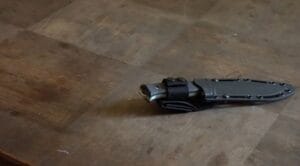 Hatchets, knives, and folding saws only come in two styles– cheaply made or good. Invest in a fixed blade knife for processing wood, hunting, cutting, setting up camp, that is preferably a full-tang knife. The folding saw is useful on small logs and branches. The hatchet is a long-term solution. A fixed blade knife will serve you much better than a pocket knife will. All of these can be used for self-defense, as well.
Area Map & Orienteering Compass
Hatchets, knives, and folding saws only come in two styles– cheaply made or good. Invest in a fixed blade knife for processing wood, hunting, cutting, setting up camp, that is preferably a full-tang knife. The folding saw is useful on small logs and branches. The hatchet is a long-term solution. A fixed blade knife will serve you much better than a pocket knife will. All of these can be used for self-defense, as well.
Area Map & Orienteering Compass
 After a disaster, street signs and landmarks may be non-existent. Roads may be impassable. We suggest, that you have a area specific map of no more significant than 50-miles around you and a simple orienting compass. Sometimes you have to get from point A to point B, but you have to go through Point G to get there. Have at least some hardcopy navigation tools in hand to get you where you need to go when your GPS isn’t working, even if you know the typical route.
First Aid Kit
After a disaster, street signs and landmarks may be non-existent. Roads may be impassable. We suggest, that you have a area specific map of no more significant than 50-miles around you and a simple orienting compass. Sometimes you have to get from point A to point B, but you have to go through Point G to get there. Have at least some hardcopy navigation tools in hand to get you where you need to go when your GPS isn’t working, even if you know the typical route.
First Aid Kit
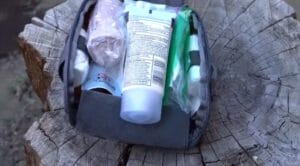 No matter where you get your first aid kit, always think of it as a starter for you to build upon. You want to make sure the band-aids genuinely stick. You want medicines in there you know are up-to-date and provide the broadest of treatment regimens. And, you want it small and portable. Whether it’s a minor scrape or a significant trauma, you absolutely need a first aid kit in your bag.
Seeds & Food
No matter where you get your first aid kit, always think of it as a starter for you to build upon. You want to make sure the band-aids genuinely stick. You want medicines in there you know are up-to-date and provide the broadest of treatment regimens. And, you want it small and portable. Whether it’s a minor scrape or a significant trauma, you absolutely need a first aid kit in your bag.
Seeds & Food
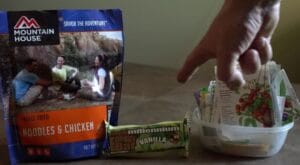 Have some freeze-dried foods, calorically dense bars, and maybe some seeds. It doesn’t hurt to have all of these in your bag. Sometimes you just need a quick meal to clear your brain fog and restore nutrient levels. Additionally, depending on where you may be forced to bug out and for the potential amount of time you may be stuck there, having seeds may help in your next evolution of survival. With their size and weight, it’s not a bad consideration.
Sun Screen & Insect Repellant
Have some freeze-dried foods, calorically dense bars, and maybe some seeds. It doesn’t hurt to have all of these in your bag. Sometimes you just need a quick meal to clear your brain fog and restore nutrient levels. Additionally, depending on where you may be forced to bug out and for the potential amount of time you may be stuck there, having seeds may help in your next evolution of survival. With their size and weight, it’s not a bad consideration.
Sun Screen & Insect Repellant
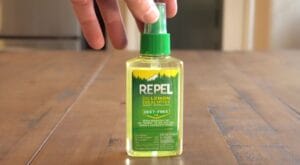 Often forgotten but part of your shelter, you need sunscreen and insect repellant. If you have ever been eaten alive by bugs or had a sunburn so bad you blistered, and it hurt to move, you know how important these can be. For minor and temporary disasters, any sunscreen will do. For insect repellents, they range from the natural to the extreme. You use what works best for you and your skin type, but get these protective layers in your bag.
CONCLUSION
We know there are many other things you could consider an essential survival item. We wanted to focus on very low-cost and lightweight items here. If you have each of these fifteen in your emergency stash and you know how to use them, you will be far better off than most people after a disaster. Your odds of survival will be exponentially higher.
Suppose you have all of these items already. Great. Are they all in the same bag or backpack? If not, you need to get them all together. After a disaster is not the time to try and remember where you put everything or where you last used it. Your goal is to put one of each of these items and more into a single backpack. Then store that backpack in the closet by your door, under your desk at work, in the trunk of your car, or wherever you spend most of your time and would most likely be when disaster strikes. We have a similar kit in my car and in my bugout bag. We have bags for the kids and my wife. What do you think? What’s your go-to survival essential? Did we cover it here? Let us know in the comments below. We try to read the comments and respond to them when we can, typically within the first hour of releasing a blog. Please consider subscribing to the site if you’d like to be notified when we release a blog and give this blog a thumb-up to help the channel grow.
As always, stay safe out there.
LINKS TO ITEMS DISCUSSED IN THIS VIDEO:
Leatherman wave multi-tool – https://amzn.to/3suwnKp
Tough-Grid Paracord – https://amzn.to/3JlpTEs
Gorilla tape: https://amzn.to/3GstCOW
LifeStraw – https://amzn.to/3AS6eZT
Mini Sawyer – https://amzn.to/3oldMiO
Aqua Germicidal Water Purification Tablets – https://amzn.to/32S3IWW
Petoskey 42-Gallon, 3mil, Contractor Trash Bags – https://amzn.to/3oHKo6t
Reversible Tarp – https://amzn.to/3Jnf70n
Bic lighter – https://amzn.to/3rJ3Di8
Crank Emergency Charger/Radio/Flashlight – https://amzn.to/3okKd0L
Olight flashflight (1,750 lumens) – https://amzn.to/3uEL4NR
Olight flashlight (14,000 lumens) – https://amzn.to/3Bl9wVJ
Headlamp – https://amzn.to/3Jjvr2f
Walkie Talkies – https://amzn.to/3oAIuEL
Ham Radio Walkie Talkie – https://amzn.to/3ojWTVH
17 OZ Uninsulated Single-Walled Stainless Steel Water Bottle – https://amzn.to/3LnMD8J
Hatchet – https://amzn.to/3uHrCA7
Folding Saw – https://amzn.to/3BbETBW
APO 1 Surival knife – https://bit.ly/33gDBcy
Orienteering Compass – https://amzn.to/3ukCsvs
Professional First Aid Kit – https://amzn.to/3ghuR91
Often forgotten but part of your shelter, you need sunscreen and insect repellant. If you have ever been eaten alive by bugs or had a sunburn so bad you blistered, and it hurt to move, you know how important these can be. For minor and temporary disasters, any sunscreen will do. For insect repellents, they range from the natural to the extreme. You use what works best for you and your skin type, but get these protective layers in your bag.
CONCLUSION
We know there are many other things you could consider an essential survival item. We wanted to focus on very low-cost and lightweight items here. If you have each of these fifteen in your emergency stash and you know how to use them, you will be far better off than most people after a disaster. Your odds of survival will be exponentially higher.
Suppose you have all of these items already. Great. Are they all in the same bag or backpack? If not, you need to get them all together. After a disaster is not the time to try and remember where you put everything or where you last used it. Your goal is to put one of each of these items and more into a single backpack. Then store that backpack in the closet by your door, under your desk at work, in the trunk of your car, or wherever you spend most of your time and would most likely be when disaster strikes. We have a similar kit in my car and in my bugout bag. We have bags for the kids and my wife. What do you think? What’s your go-to survival essential? Did we cover it here? Let us know in the comments below. We try to read the comments and respond to them when we can, typically within the first hour of releasing a blog. Please consider subscribing to the site if you’d like to be notified when we release a blog and give this blog a thumb-up to help the channel grow.
As always, stay safe out there.
LINKS TO ITEMS DISCUSSED IN THIS VIDEO:
Leatherman wave multi-tool – https://amzn.to/3suwnKp
Tough-Grid Paracord – https://amzn.to/3JlpTEs
Gorilla tape: https://amzn.to/3GstCOW
LifeStraw – https://amzn.to/3AS6eZT
Mini Sawyer – https://amzn.to/3oldMiO
Aqua Germicidal Water Purification Tablets – https://amzn.to/32S3IWW
Petoskey 42-Gallon, 3mil, Contractor Trash Bags – https://amzn.to/3oHKo6t
Reversible Tarp – https://amzn.to/3Jnf70n
Bic lighter – https://amzn.to/3rJ3Di8
Crank Emergency Charger/Radio/Flashlight – https://amzn.to/3okKd0L
Olight flashflight (1,750 lumens) – https://amzn.to/3uEL4NR
Olight flashlight (14,000 lumens) – https://amzn.to/3Bl9wVJ
Headlamp – https://amzn.to/3Jjvr2f
Walkie Talkies – https://amzn.to/3oAIuEL
Ham Radio Walkie Talkie – https://amzn.to/3ojWTVH
17 OZ Uninsulated Single-Walled Stainless Steel Water Bottle – https://amzn.to/3LnMD8J
Hatchet – https://amzn.to/3uHrCA7
Folding Saw – https://amzn.to/3BbETBW
APO 1 Surival knife – https://bit.ly/33gDBcy
Orienteering Compass – https://amzn.to/3ukCsvs
Professional First Aid Kit – https://amzn.to/3ghuR91 
